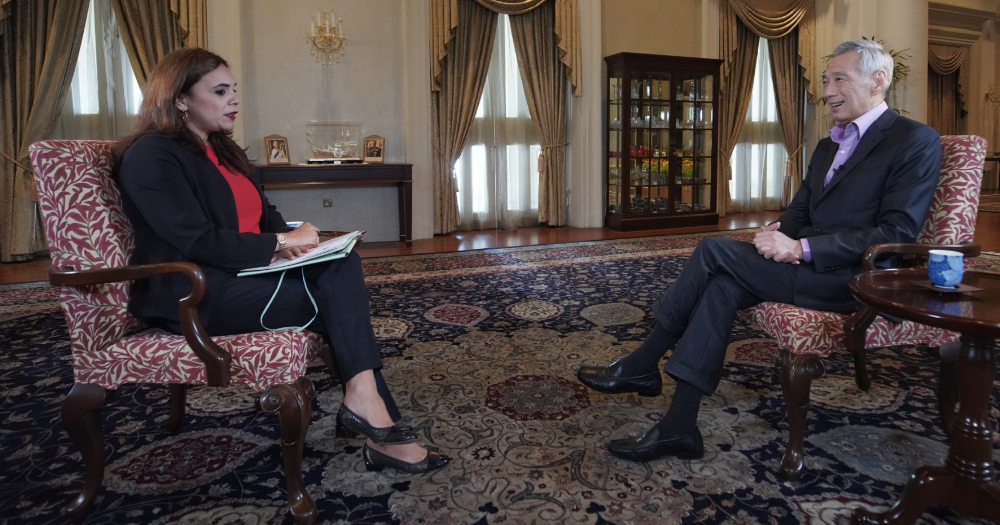Follow us on Telegram for the latest updates: https://t.me/mothershipsg
Should sanctions be imposed on Myanmar, it is not the military or the generals who will hurt, but the ordinary population, Singapore's Prime Minister Lee Hsien Loong said in an interview with the BBC on Tuesday, Mar. 2.
Sanctions hurt ordinary people more
Slapping sanctions on Myanmar will deprive the Myanmar people of "food, medicine, essentials, and opportunities for education," he said.
He added: "How does that make things better?"
PM Lee was responding to the interviewer's question, who asked if "economic considerations" come before "humanitarian concerns" in Myanmar, in reference to the option of imposing sanctions.
He elaborated that it is not "a matter of economic considerations or to benefit from trade from Myanmar", explaining that the volume of trade is "very small" for Singapore and other countries as well.
"Not acceptable" to use lethal force against civilians
PM Lee also said that it is "just not acceptable" to use lethal force against unarmed demonstrators, adding that such an act is "disastrous not just internationally", but also "domestically".
This is because everyone in Myanmar will learn about the military's harsh treatment of civilians.
"You may try to squeeze down the internet, but news gets around, and the Myanmar population knows who is on their side", he said, adding that the Myanmar government will have "a very big problem" if the people decide that the government is not on their side.
Outsiders have "little influence"
PM Lee further said arresting the democratically-elected civilian leader Aung San Suu Kyi and other National League for Democracy (NLD) members, as well as charging them with "walkie talkie offences and things like that" will not help solve the problem.
On what the military should do instead, he said: "You really have to get back, release Aung San Suu Kyi, negotiate with her and her team, and work out a peaceful way forward for Myanmar."
He added that outsiders have "very little influence on this", and that while external players can "ostracise them, condemn them, and pass resolutions", these have "very little influence" on what the military will do.
Citing past history, PM Lee said such actions had "zero influence the last time round", and that the only impact they had was to push the military to "those people who were willing to talk to them, which was China, and to some extent, India".
He elaborated:
"It was an uncomfortable position for them, but it did not cause them to decide that they must do what the Americans, Europeans, or even the Asean countries, would have preferred them to do."
What next if outsiders intervene militarily?
PM Lee said Singapore has to be "realistic" about any request to "take action" in Myanmar.
He said the Southeast Asian country has to express disapproval for what is done, which is "against the values of many other countries, and in fact a large part of humanity", and added:
"But to say that I will take action against them, where does this lead?"
He continued: "Now, the demonstrators are saying military intervention in Myanmar? Is the 82nd Airborne (American airborne infantry troops) going to arrive?"
Hopes for sense to prevail
When asked how he sees the political crisis in Myanmar playing out, PM Lee said he hopes that "wisdom will prevail, as it did the last time" when the military decided to embark on a path of limited democratic reforms.
He also hoped that the military will "conclude that to go the military route does not lead anywhere, and they have to work out an arrangement with the civilian government".
On how realistic that scenario is, given that live rounds have been fired, PM Lee said while "bad things" have happened, such as when civilians were killed during "the riots in 1988" and the "violent demonstrations in 2007", he thinks that "sense can still eventually prevail".
"It may take quite a long time, but it can happen. It has happened before," he said.
Read more:
Top image via Ministry of Communications and Information
If you like what you read, follow us on Facebook, Instagram, Twitter and Telegram to get the latest updates.
